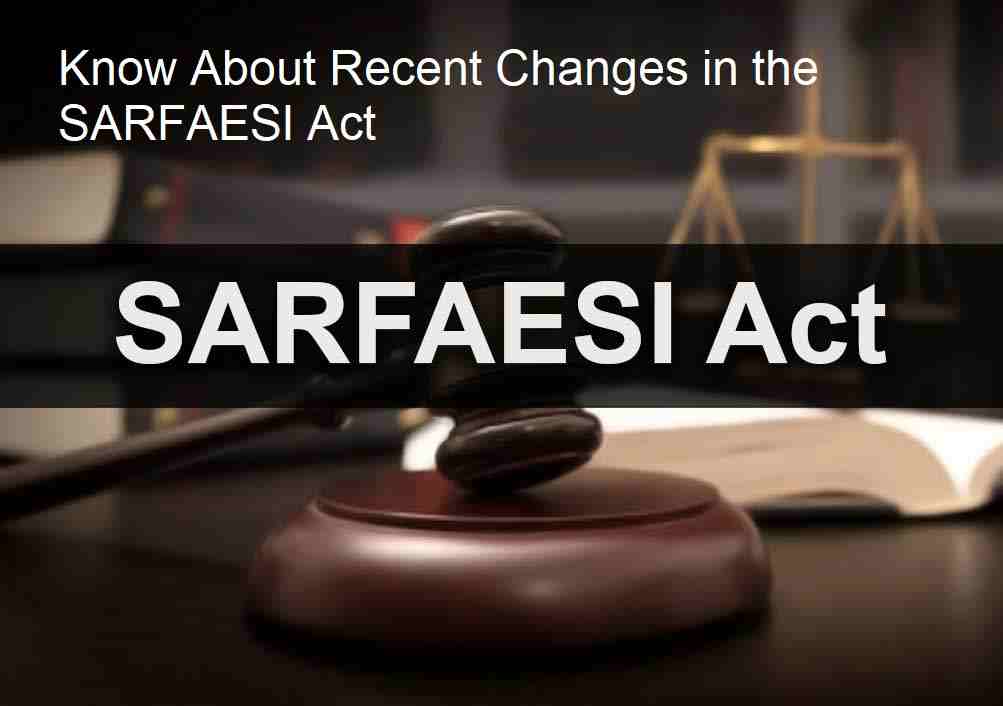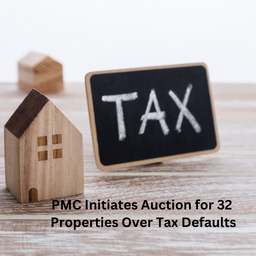Bank-owned homes, also known as real estate-owned properties, are often overlooked by novice investors. However, those who take the time to learn about this kind of property are aware that they provide excellent opportunities for investment. These properties typically have lower prices, fewer competitors, and high potential returns. However, as with all real estate investments, if you don't know what you're doing, you could easily lose everything. We've compiled the ultimate guide to bank-owned properties to answer common inquiries from novice investors and provide you with comprehensive information. Keep reading to find out how to find REO bank owned homes, how to finance them, and how to buy them!
What is a home owned by a bank?
Let's begin by defining what exactly constitutes an REO property. These are homes that have been foreclosed on but haven't sold at an auction. They are technically now owned by lenders, like a bank or creditor. When borrowers fail to repay loans, lenders foreclose on homes and attempt to recoup their funds by selling them. Lenders will acquire the property if no bidder offers the required amount to cover the loan. As a result, after going through the foreclosure process, real estate properties, such as detached homes, condos, townhouses, land, or commercial properties, become homes owned by the bank.
The REO process is broken down into three distinct phases, which are as follows:
Default on a Loan: This occurs when the borrower (the homeowner) fails to pay their mortgage for a predetermined amount of time. Typically, the terms of the mortgage specify it. The lender will begin the foreclosure process and send a Notice of Default after 90 days of missed payments.
Foreclosure: The property is auctioned here during the foreclosure process. The lender will attempt to sell the property to the highest bidder at this stage. The bank will get back some of the mortgage debt if it sells it.
Owned real estate: The property is repossessed by the bank and becomes bank property if it does not sell during the previous stage. Lenders attempt to sell the property on their own, typically through a broker, after removing the occupant and any liens on it.
Is Purchasing These Homes a Good Investment?
There are numerous reasons why real estate-owned homes are appealing to property investors. The advantages of purchasing bank-owned properties for real estate investing include the following:
1) They Are Offered at Reduced Costs Lenders of mortgages and banks do not accumulate wealth by retaining non-performing properties. By lending money to borrowers and collecting interest, they accomplish this. Most importantly, banks don't want to keep loans that don't pay off. As a result, lenders are more than happy to let go of properties after repossessing them. For real estate investors, this is the first advantage of investing in homes owned by foreclosed banks.
1)To get back the money they loaned, banks want to sell their REO properties as soon as possible. Banks are unquestionably motivated sellers. To avoid holding onto these properties and incurring additional losses, they may be willing to sell them at a discount. This makes bank-owned homes very desirable for a real estate investor who knows how to find good deals and navigate the REO procedure! Therefore, if you want to find inexpensive investment properties, look for properties that are available for sale that are owned by banks.
2) There are no unpaid taxes or title liens If you buy investment properties through a traditional real estate transaction, you will undoubtedly encounter issues that make the sale more difficult and cause it to take longer. Outstanding taxes and title liens, which must be resolved prior to the sale of a property, are frequently one of the most significant issues that buyers encounter. On the other hand, most REO bank-owned properties do not have any of these problems or other outstanding claims. This is due to the fact that when a property becomes REO, the lender removes all liens against it and ensures that all taxes have been paid. This aids property investors in making significant cost savings and expediting the closing of deals.
3) There Is No Owner to Negotiate With If there are no outstanding tax and title liens, there is also no homeowner to negotiate with! You won't negotiate with sellers who are personally attached to their homes when buying bank-owned properties; rather, you will negotiate with a bank that wants to recoup its losses. This will help real estate investors save time during negotiations. You also gain another advantage from this: the ability to look at the house.
You might not be able to fully inspect an investment property before making an offer if you buy it at a foreclosure auction. You can, however, employ a home inspector once the property becomes REO. Any investor should pay attention to this because a home inspection can be used as leverage when it comes time to negotiate because it provides a clear layout of the house, identifies issues that require repairs, and so on.
4) You Can Invest in Bank-Owned REO Properties to Make Money If you want to invest in bank-owned REO properties to make money in real estate, you can do so in a variety of ways, depending on your strategy and personal objectives. Renting bank-owned houses is one option. You'll be able to generate cash flow and earn money from tenants' monthly rental income in this manner. If you keep the rental property for a long time, you can also benefit from real estate appreciation with this strategy.
Consider investing in REO properties as a fix-and-flip strategy if this is not your preferred real estate investment strategy. You will be able to buy the house at a low price, invest in improvements and renovations that will increase its value, and then sell it at a higher price. When done correctly, the fix-and-flip strategy is a popular way to invest in real estate that can yield quick profits. There is no reason why bank-owned homes shouldn't be your next real estate investment, given all of these advantages! But how are these properties discovered by investors?
How to Find REO Bank-Owned Properties Near Me? Finding REO bank-owned properties that are profitable as investment properties is an important question to ask. In the United States, investors can search for and locate bank-owned properties in a variety of ways. This comprises:
Direct Contact with Lenders: Since some lenders are willing to provide you with a list of their available REO properties for sale, this is probably the most effective method for finding bank-owned properties. Additionally, this can assist you in avoiding competition on public bank-owned home listings.
Real Estate Agents: A real estate investor will find this to be simpler and more trustworthy. These agents can help you determine the best price by locating multiple options in your area from multiple lenders.
How to search the MLS: A Multiple Listing Service is where the majority of lenders list their REO properties. This indicates that your real estate agent can assist you in locating opportunities for REO investment in your city.
Websites of banks: These real estate properties are sold by a whole department at some banks. Additionally, their listings, whether residential or commercial bank-owned properties, have their own sections on their websites.
A real estate investor will need more than the aforementioned methods to find bank-owned homes for sale. Only properties that will unquestionably yield a positive return on investment are chosen by successful investors. Therefore, you will need investment tools to quickly locate and evaluate the potential profits from purchasing foreclosed homes owned by banks.
Seven Steps to Buying Bank-Owned Properties
Step 1: Find a Lender and Get Financing No matter what kind of loan you want to use to finance bank-owned homes for sale, getting a pre-approval letter early is essential. Therefore, the first thing you should do after finding investment properties that you are interested in is to discuss your financing options with the lender. This is important because, as previously stated, lenders want to get rid of REO homes by selling them. Better is preparedness when it comes to financing. The home's owner's lender will almost certainly expedite your pre-qualification process. Additionally, the lender will be aware that you are financially able to purchase the property, increasing the likelihood that they will accept your offer.
Step 2: When purchasing investment properties, many real estate investors would choose not to employ an agent at all. Even though you can do that, it's still best to hire an agent, especially if you're just starting out in real estate investing. You'll have a partner in an agent who will help you with every aspect of buying bank-owned properties by utilizing their expertise. Additionally, try to locate a real estate agent who frequently deals with properties of this kind. These agents know how to negotiate with lenders to get the best price, how to figure out how much it will cost to fix things, how to work within the lenders' timeframe, and how to get you ready for the next step.
Step 3: Reduce the Number of Potential Properties on Your List Once you have a real estate agent on your side, you can begin reducing the number of properties owned by banks on your list. Having a list of things you want in an investment property is essential for this step. Consider the following major characteristics:
Price of the listing, location, and neighborhood quality. Number of bedrooms and bathrooms. Important repairs and how they affect price and value. Most importantly, you need to think about the expected return on investment from this property. Because you are purchasing it as an investment, it ought to be able to provide you with a return. Again, our Real Estate Investment Calculator will assist you in reducing your list to the best bank-owned properties.
Step 4: Even though REO bank owned homes are priced below market value by banks, this does not mean that purchasing them is an automatic bargain. Instead, you should get an appraisal and an inspection. Due to their severe damage or undesirable location, some REOs are discounted. On the other hand, comparable sales in the area may lead to an overpriced bank-owned property. Therefore, a real estate investor's next step is to obtain an appraisal to determine the property's true value in comparison to the asking price and determine whether it is a fair price.
Before purchasing foreclosed homes for sale that are owned by the bank, it is essential to obtain a home inspection. For months or even years, some of these properties have been unoccupied and neglected. As a result, major issues that require significant repair may arise. Hire a professional to inspect the house to ensure that no costly issues are overlooked and that an REO property is suitable for you. Before making a purchase decision, investors gain an understanding of the required renovations and repairs through a home inspection.
Step 5: Make an Offer to Purchase After locating the appropriate bank-owned property, it is time to make an offer. A reputable agent will assist you in assembling your offer, determining which offer is most likely to be accepted, and presenting it to the lender. Keep in mind the major issues that were discovered by the home inspection when making an offer on an REO property. You can use this to negotiate a lower offer if the repairs that need to be done are clearly documented. In addition, the bank will want to know that you are a serious buyer who will not waste their time and can close. This can be communicated to a real estate investor by including a check for earnest money (typically 1% to 2% of the purchase price) in the offer.
How much ought I to offer for REOs owned by banks?
This is the question that everyone wants to know the answer to. REO properties attract investors due to their substantial discounts. However, because they are unsure of how much to offer, some people fail to secure a deal. People don't want to pay too much for cheap property. However, lenders won't take your offer seriously if it's too low. You must have an offer that is valuable to you and has a good chance of being accepted. Quick tips for making an excellent offer:
Complete your work: Real estate comps show how the offer compares to recent sales of similar homes in the area. If you discover that the REO home has been overpriced by the bank, you may offer a lower price and provide an explanation in a cover letter.
Include a sheet of nets: This breaks down all of the costs associated with the closing so that the bank can determine how much money they will make from the sale of your offer.
Write down everything: The property's estimated value is already known to lenders. However, you can include documentation regarding the property's condition, estimated renovation costs, and comparable sales to support your offer.
Prove that you are the easiest to sell to: Banks want to see that your offer is the best one that can be trusted and close quickly. By including your approval letter, you can emphasize how safe and low-risk your offer is.
Step 6: Despite common misconceptions, a real estate investor can negotiate terms with banks, particularly if they were contacted first. The price, who pays for what, the right to inspect the property, and the date of the closing are all subject to negotiation. Keep in mind that negotiating with homeowners is distinct from negotiating with lenders for bank-owned homes. As previously stated, there are no feelings involved here, unlike when dealing with a homeowner.
However, banks typically respond to offers more slowly than homeowners do. This is due to the fact that the offer must be reviewed by multiple individuals or businesses prior to approval. In order to keep the purchase process moving forward, lenders will expect you to respond quickly when they respond. In addition, banks are more likely to make a counteroffer because they want to show that they tried their best to get the property at the best price. During the negotiation stage, a knowledgeable and skilled agent may be an invaluable partner.
Step 7: Finish Up Your Loan and Close the Deal After you and the lender have agreed on the terms, you will need to complete paperwork and share information to finish up your loan and make sure it matches your offer. After that, it's time to check the title's status. Before selling an REO property, banks typically clear the title, but this is not always the case. Therefore, in the event that you are required to conduct a title search on your own, get in touch with the lender to inquire as to whether the title has been cleared or not, and prepare a title company to do so.
It is time to close your loan once it has been approved. The process of closing on bank-owned homes is the same as any other, with one exception. The lender may assess a penalty for each day that passes after the deadline if you fail to close by the predetermined date. You can avoid any delays by taking the first step of getting pre-qualified for a loan and obtaining financing. You and the lender will sign the necessary paperwork at the closing to complete your mortgage and transfer ownership of the house. Finally, you will receive the keys to your new investment property after signing everything and transferring the money.
Things to Know Before Buying REO Homes:
1) You May Compete With Others: There is a good chance that other investors will agree with you that an REO property is a great deal. Work with your agent to determine the bank's requirements if additional offers are being considered. You can use this to write a compelling offer that has a good chance of being accepted.
2) REO properties are sold "as is" by banks: A non-performing property is not something that banks want to spend money on. This means that you will be responsible for all of the repairs once you purchase bank-owned homes. Keep in mind that some of these properties will have significant problems that will take a lot of money to fix. Again, get a home inspection to find any major problems and figure out how much it will cost to fix them.
3) Make Sure You're Prepared Financially: This is related to the previous point. If you find a REO property that needs a lot of work done, make sure you have enough money to cover the costs. That is to say, you should be aware of the home's value after renovations are finished and be able to afford repairs.
4) You must be patient: REOs involve a lot of paperwork that needs to be looked over, so it might take the bank a few weeks to respond to your offer. Furthermore, since a counteroffer is likely to be made in response to your offer, the negotiation stage may take longer. Be patient and request that your agent keep you informed while you wait.







